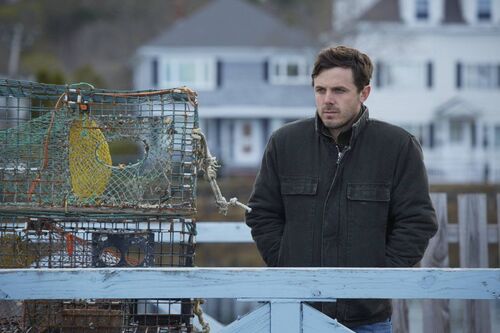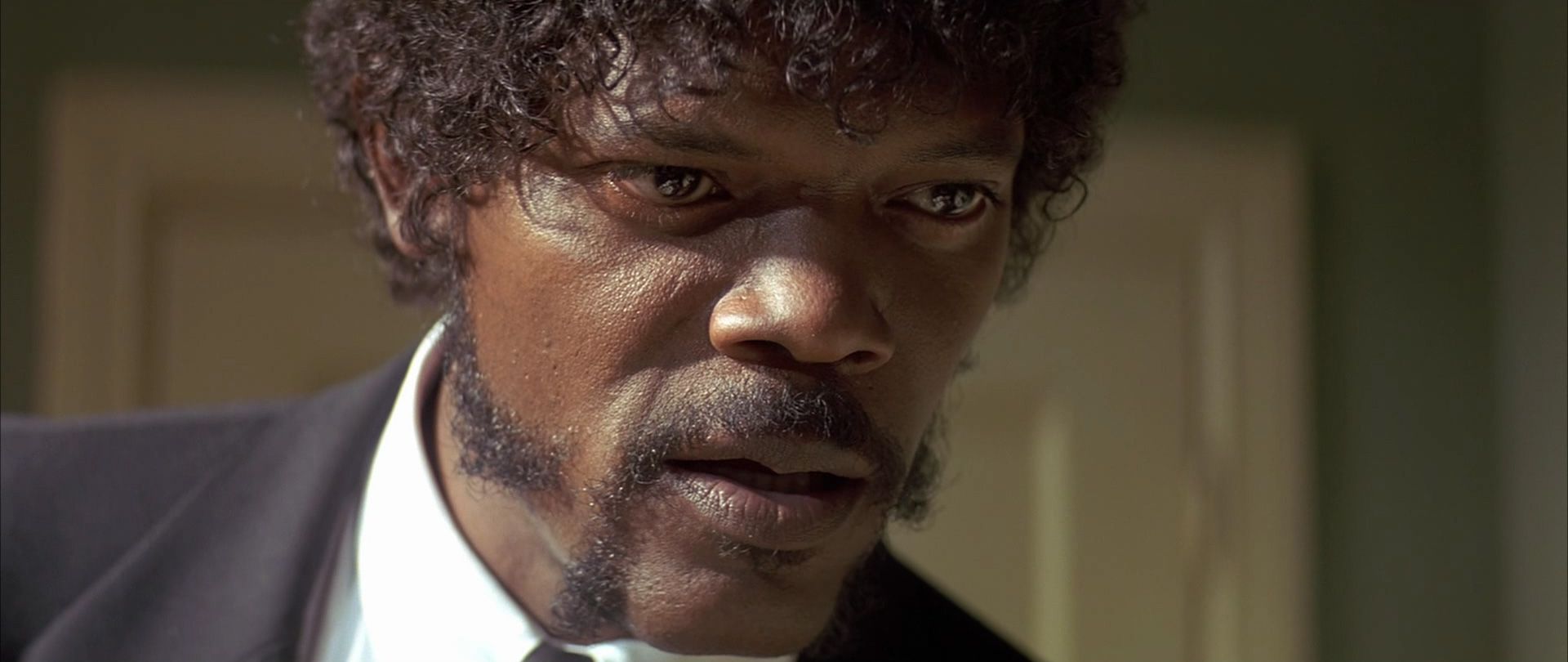
Pulp Fiction in Retrospect
 In 1994 Quentin Tarantino showcased his second movie at the Cannes Film Festival winning the prestigious Palme d'Or. It was a huge hit amongst the critical world and would later become just as popular with moviegoers. Twenty years on, and it is still revered as one of the most important American movies of all time.
In 1994 Quentin Tarantino showcased his second movie at the Cannes Film Festival winning the prestigious Palme d'Or. It was a huge hit amongst the critical world and would later become just as popular with moviegoers. Twenty years on, and it is still revered as one of the most important American movies of all time.
The film was called Pulp Fiction and it exploded with brute force across the cinematic landscape of the time. It revitalised John Travolta's career. It made Samuel L. Jackson a super star. It announced Uma Thurman as one of Hollywood's best leading ladies. It helped Bruce Willis shake his action hero moniker. It made Quentin Tarantino a rock star.
Audiences and critics went wild for this ultra-violent, dark humoured drama. It infused pop culture references with gangster motifs and boasted a narrative steeped in dexterity. It brought audiences together unlike any movie of it's time. Young teenagers would sit next to college intellects who'd in turn sit next to cinephiles and your average popcorn chewer. It was a film that boasted many riches and still does to this very day.
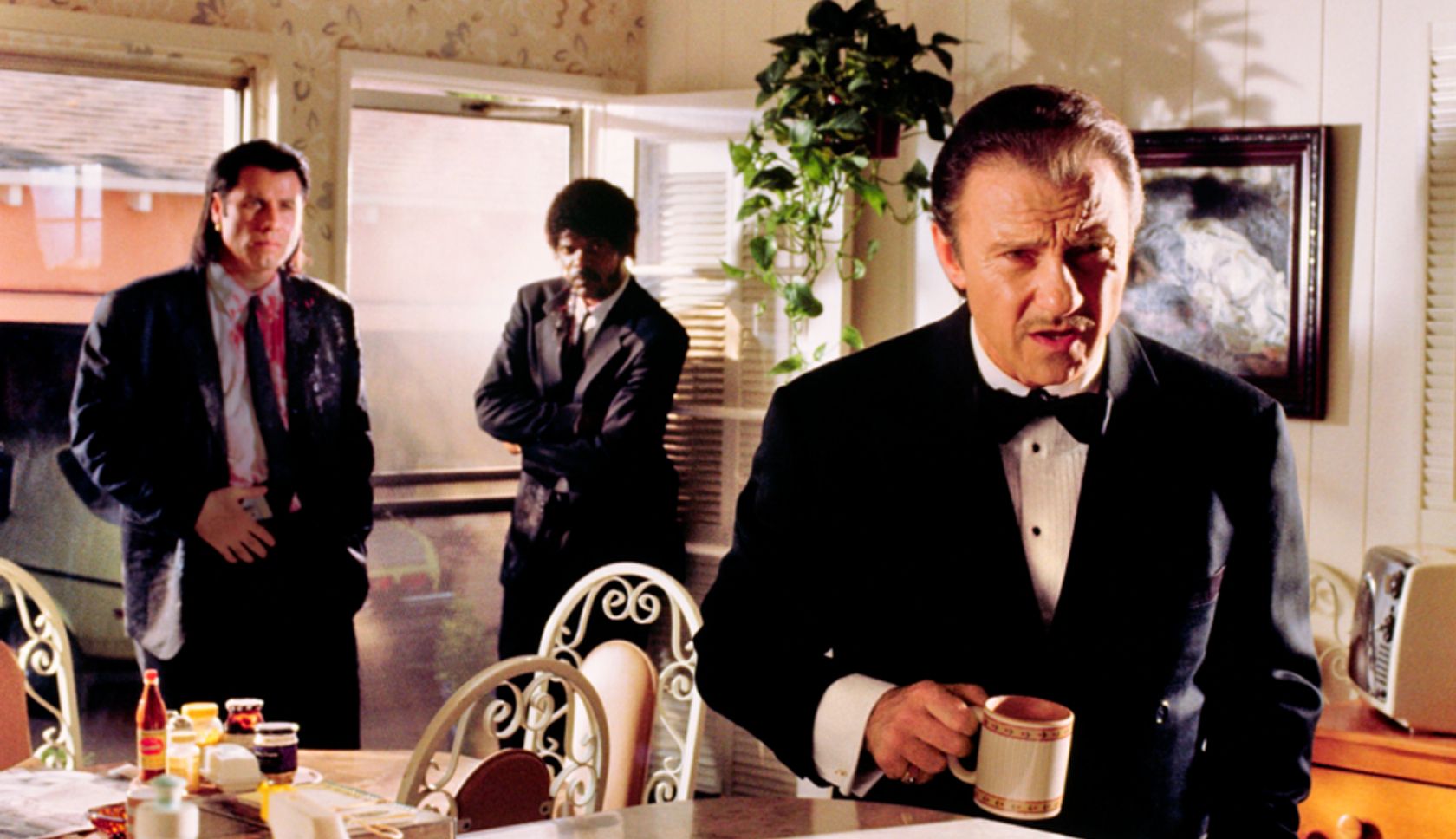
"As a cinephile, to me, Cannes is heaven." -- Quentin Tarantino
The Cannes Film Festival in 1994 was the springboard for Tarantino to truly cement his importance as a screenwriter and filmmaker. The ceremony to announce the winner of the Best Picture was something that the festival had never seen before and will never forget. The winner of the Palme d'Or is selected by a jury every year consisting of esteemed critics, screenwriters, filmmakers and even established actors. The 1994 jury was headed by Hollywood superstar Clint Eastwood. Eastwood and the other members gathered together and awarded Pulp Fiction the highest honour of the festival.
Unfortunately, this was too much for some. An irate women attending the ceremony stood up at the back of the auditorium, disrupting proceedings by shouting "Scandal! Scandal!" in French. This did nothing to deter Tarantino, who set about standing up himself and hoisting his middle finger in the direction of the women. This only helped garner the audience together who would give Tarantino a substantial cheer when he collected the award. During his speech Tarantino would make light of the situation that had just unfolded by saying, "I don't want to make movies that bring audiences together. I want to make movies that split people apart."
making his own decisions
After the success of Reservoir Dogs in 1992, Tarantino was an intriguing filmmaker. Critics pondered on what he would do next whilst audiences salivated at the prospect of another violent drama in the same theme of Reservoir Dogs. But it wasn't quite what Miramax had in mind. With an iron fist, Tarantino decided he would make his own decisions on what he'd do next and prove Miramax wrong. Tarantino was paid $60,000 for making Reservoir Dogs and he would use that money to leave the United States for a period of time so he could immerse himself into another countries culture. Amsterdam was his destination of choice and would become a underlying theme within Pulp Fiction.
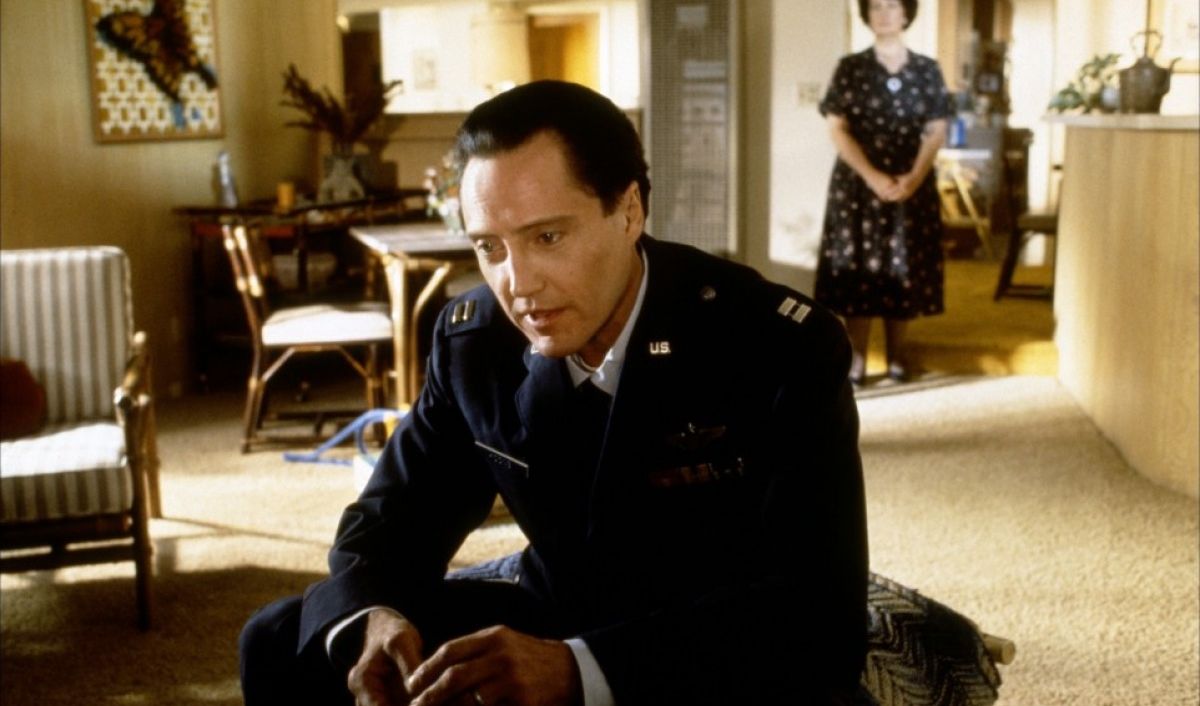
The scene between Jules (Jackson) and Vincent (Travolta) after the opening credits (often referred to as the 'Royale with Cheese' scene) is littered with Dutch references. Referencing hash bars and the metric system weave throughout the scene, giving it a hang-out feel to our viewing pleasure. This would become a common aspect within Pulp Fiction's narrative structure and subsequently, most Tarantino films thereafter.
Tarantino has an ability to to move away from the plot for a moment in time helping us develop a like or dislike for the his cartoonish characters. No one in Pulp Fiction has a loveable side to them. We are trained as viewers to loathe characters of this ilk. These characters are cold blooded killers right down to their core, but this use of general chatter brings out their human side and we can't help but fall in love.
the ultimate audience member
What makes Tarantino as a storyteller special, is his inherent sense of what the audience wants because he is the ultimate audience member. Pulp Fiction is a particular film that Tarantino knew audiences needed to see. It was a story unlike anything ever told, tying in perfectly with Tarantino's outlook on cinema as a whole. He has a distinct view on how it should be or how it shouldn't be— he never get's pushed around and his audience respects him for that. With Pulp Fiction, Tarantino's audience didn't let him down.
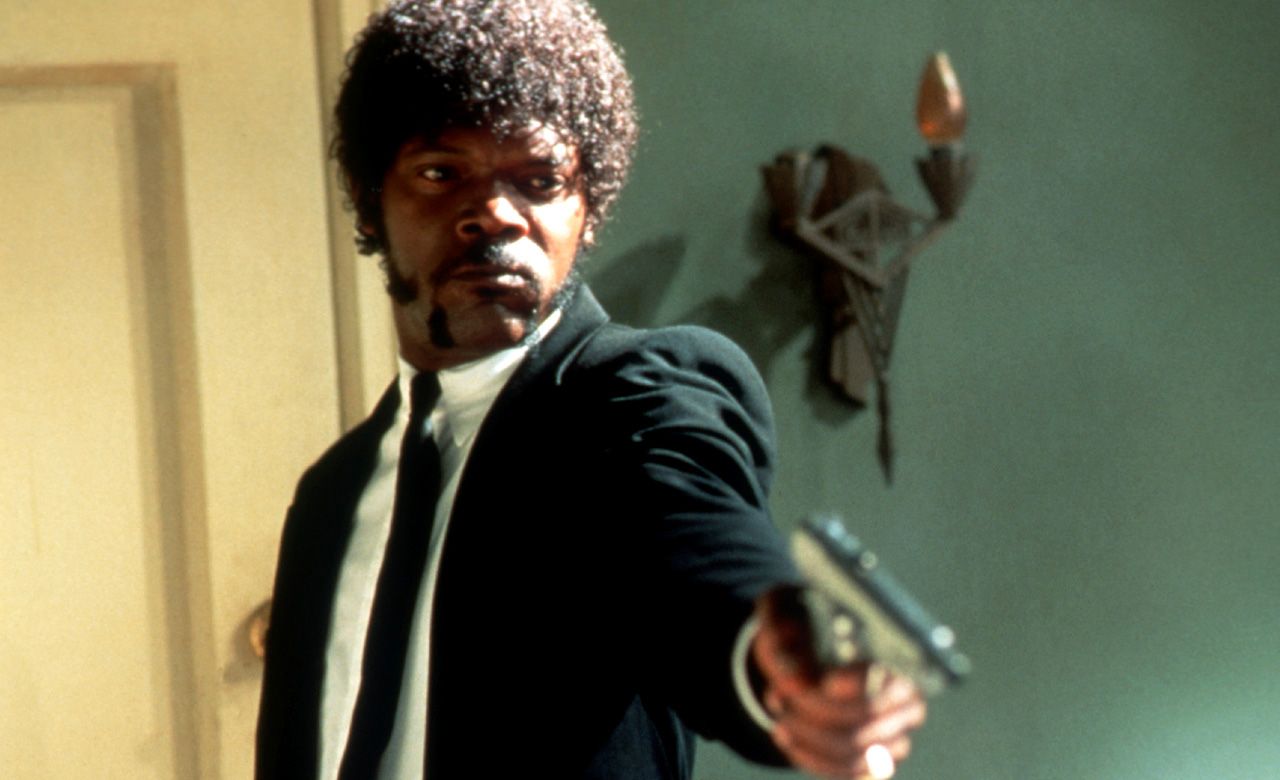
Pulp Fiction made $100M in the United States alone— which for an independent film is quite frankly insane. Tarantino's vision truly paid off. Pulp Fiction has an underlying quality of a vision well honed, a vision that had clearly been developed over many years, almost frame for frame. Naivety can be a cruel thing, but it can also be equally as important. Tarantino had only made one feature length film when he set about making Pulp Fiction. He was told he couldn't do it— it's too violent, features too many pop culture references, and structurally all over the place. Tarantino is a mad genius who knows what he wants and knows how to achieve the results he wants.
Twenty years later, people are still interested in this film. It was, and still is, a vastly influential film— particularly for independent filmmakers. It gives hope to many aspiring film directors that a guy from a video store could make a movie of this stature. But for all the filmmakers it has influenced, Pulp Fiction is a film that revelled in being a genre film, it exploited the genre and turned cinema on it's head. That alone, is the true testament to the importance of this movie.
